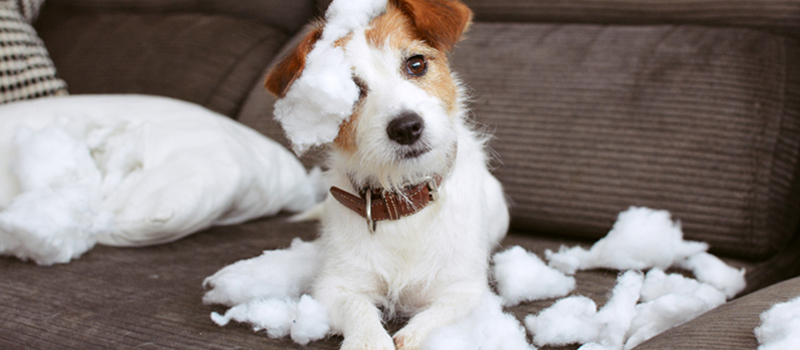Pet Damage and Homeowners Insurance Coverage
Pet Damage and Homeowners Insurance Coverage

Pet Damage and Homeowners Insurance Coverage
Is pet damage covered under my insurance?
The short answer: it depends on your coverage, and what the damage consists of.
- Personal property damage: your homeowners policy usually covers damage to some of your belongings, but if your cat decides to scratch holes through the back of your couch, it’s unlikely you would be able to file a claim to cover the damage. Pet damage is normally excluded from personal property damage coverage, but coverage does vary.
- Liability coverage: most standard homeowners policies may provide at least some coverage if your pet damages somebody else’s property, but it depends on your individual policy. For example, if your dog breaks through the screen door at a friend’s house, your liability coverage might kick in and help to cover the cost of repairs or replacement.
- Dwelling coverage: generally speaking, homeowners insurance policies do not cover damage resulting from pets. For example, if you have a large dog who gets anxious and causes damage to your drywall or doors, it may not be covered.
Tips for Preventing Pet-Related Damage
- When choosing a pet, find a good fit for you. It’s tough to find the right pet, and things like the breed and temperament are important to consider. If you adopt a high-energy dog that demands attention but you spend very little time at home, it’s likely that your pet may react in a destructive manner.
- Exercise your pet regularly. It can be tough to fit in regular exercise for your pet if you have a demanding job, but it’s important to engage with your pet to keep them from getting bored or anxious – and taking it out on your couch, carpet, or other belongings.
- Consider purchasing toys that keep your pet engaged. If toys are available that are appropriate for your pet’s size, age and activity level, it’s less likely they’ll resort to scratching on your leather sofa or chewing on your table legs to keep them entertained.
- Training is a must. It takes a lot of time and patience, but making sure your pet is properly trained and housebroken can save you a lot of money and headaches in the long run. If you don’t have time to train them yourself, consider obedience classes or consultants to help you understand and manage your pet’s behavior.
- Take time to pet-proof your home. If there are certain areas of your home you don’t want your pet accessing when you’re not home, you may want to install gates or other barriers. Look at each room from the pet’s perspective, and move items like plants or breakables that you don’t want them to be near. Some pet owners prefer to crate train their pets, to ensure that pets won’t cause damage when the owners are away. If you are adopting a puppy or kitten, keep in mind that they may not be housetrained, and take appropriate precautions.
Thinking about getting a pet, or already have one but aren’t sure about what’s covered under your current homeowners policy in case they cause damage to your home? Reach out to your local agent for more info. They will answer any questions you may have about what is (and isn’t) covered, and they’ll help you get the coverage you need to help protect against any unexpected damage that may occur.
